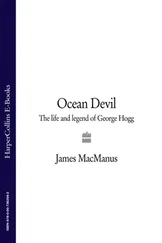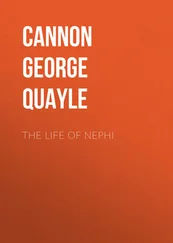George Muller - The Life of Trust
Здесь есть возможность читать онлайн «George Muller - The Life of Trust» — ознакомительный отрывок электронной книги совершенно бесплатно, а после прочтения отрывка купить полную версию. В некоторых случаях можно слушать аудио, скачать через торрент в формате fb2 и присутствует краткое содержание. Жанр: unrecognised, на английском языке. Описание произведения, (предисловие) а так же отзывы посетителей доступны на портале библиотеки ЛибКат.
- Название:The Life of Trust
- Автор:
- Жанр:
- Год:неизвестен
- ISBN:нет данных
- Рейтинг книги:4 / 5. Голосов: 1
-
Избранное:Добавить в избранное
- Отзывы:
-
Ваша оценка:
- 80
- 1
- 2
- 3
- 4
- 5
The Life of Trust: краткое содержание, описание и аннотация
Предлагаем к чтению аннотацию, описание, краткое содержание или предисловие (зависит от того, что написал сам автор книги «The Life of Trust»). Если вы не нашли необходимую информацию о книге — напишите в комментариях, мы постараемся отыскать её.
The Life of Trust — читать онлайн ознакомительный отрывок
Ниже представлен текст книги, разбитый по страницам. Система сохранения места последней прочитанной страницы, позволяет с удобством читать онлайн бесплатно книгу «The Life of Trust», без необходимости каждый раз заново искать на чём Вы остановились. Поставьте закладку, и сможете в любой момент перейти на страницу, на которой закончили чтение.
Интервал:
Закладка:
3. Having prayed and meditated on the subject or text, I desire to leave myself entirely in the hands of the Lord. I ask him to bring to my mind what I have seen in my closet concerning the subject I am going to speak on, which he generally most kindly does, and often teaches me much additionally whilst I am preaching.
In connection with the above, I must, however, state that it appears to me there is a preparation for the public ministry of the word which is even more excellent than the one spoken of. It is this; to live in such constant and real communion with the Lord, and to be so habitually and frequently in meditation over the truth, that without the above effort , so to speak, we have obtained food for others, and know the mind of the Lord as to the subject or the portion of the word on which we should speak.
That which I have found most beneficial in my experience for the last twenty-six years in the public ministry of the word, is expounding the Scriptures, and especially the going now and then through a whole gospel or epistle. This may be done in a twofold way, either by entering minutely into the bearing of every point occurring in the portion, or by giving the general outlines, and thus leading the hearers to see the meaning and connection of the whole. The benefits which I have seen resulting from expounding the Scriptures, are these: 1. The hearers are thus, with God’s blessing, led to the Scriptures. They find, as it were, a practical use of them in the public meetings. This induces them to bring their Bibles, and I have observed that those who at first did not bring them, have afterwards been induced to do so; so that, in a short time, few (of the believers at least) were in the habit of coming without them. This is no small matter; for everything which in our day will lead believers to value the Scriptures is of importance. 2. The expounding of the Scriptures is in general more beneficial to the hearers than if, on a single verse, or half a verse, or two or three words of a verse, some remarks are made, so that the portion of Scripture is scarcely anything but a motto for the subject; for few have grace to meditate much over the word, and thus exposition may not merely be the means of opening to them the Scriptures, but may also create in them a desire to meditate for themselves. 3. The expounding of the Scriptures leaves to the hearers a connecting link, so that the reading over again the portion of the word which has been expounded brings to their remembrance what has been said, and thus, with God’s blessing, leaves a more lasting impression on their minds. This is particularly of importance as it regards the illiterate, who sometimes have neither much strength of memory nor capacity of comprehension. 4. The expounding of large portions of the word as the whole of a gospel or an epistle, besides leading the hearer to see the connection of the whole, has also this particular benefit for the teacher , that it leads him, with God’s blessing, to the consideration of portions of the word which otherwise he might not have considered, and keeps him from speaking too much on favorite subjects, and leaning too much to particular parts of truth, which tendency must surely sooner or later injure both himself and his hearers. Expounding the word of God brings little honor to the preacher from the unenlightened or careless hearer, but it tends much to the benefit of the hearers in general.
Simplicity in expression, whilst the truth is set forth, is, in connection with what has been said, of the utmost importance. It should be the aim of the teacher to speak so that children, servants, and people who cannot read may be able to understand him, so far as the natural mind can comprehend the things of God. It ought also to be remembered that there is, perhaps, not a single congregation in which there are not persons of the above classes present, and that if they can understand, the well-educated or literary persons will understand likewise; but the reverse does not hold good. It ought further to be remembered that the expounder of the truth of God speaks for God, for eternity, and that it is not in the least likely that he will benefit the hearers, except he use plainness of speech, which nevertheless needs not to be vulgar or rude. It should also be considered that if the preacher strive to speak according to the rules of this world, he may please many, particularly those who have a literary taste; but, in the same proportion, he is less likely to become an instrument in the hands of God for the conversion of sinners, or for the building-up of the saints. For neither eloquence nor depth of thought makes the truly great preacher, but such a life of prayer and meditation and spirituality as may render him a vessel meet for the Master’s use, and fit to be employed both in the conversion of sinners and in the edification of the saints.
Becoming convinced, after a prayerful examination of the Scriptures, that baptism should be administered only by immersion, Mr. Müller was then baptized in the spring of 1830.
It was so usual for me to preach with particular assistance, especially during the first months of this year, that once, when it was otherwise, it was much noticed by myself and others. The circumstance was this. One day, before preaching at Teignmouth, I had more time than usual, and therefore prayed and meditated about six hours in preparation for the evening meeting, and I thought I saw many precious truths in the passage on which I had meditated. It was the first part of the first chapter of the epistle to the Ephesians. After I had spoken a little time, I felt that I spoke in my own strength, and I, being a foreigner, felt particularly the want of words, which had not been the case before. I told the brethren that I felt I was left to myself, and asked their prayers. But after having continued a little longer, and feeling the same as before, I closed, and proposed that we should have a meeting for prayer, that the Lord still might be pleased to help me. We did so, and I was particularly assisted the next time.
On October 7, 1830, I was united by marriage to Miss Mary Groves, sister of the brother whose name has already been mentioned. This step was taken after prayer and deliberation, from a full conviction that it was better for me to be married; and I have never regretted since either the step itself or the choice, but desire to be truly grateful to God for having given me such a wife.
About this time, I began to have conscientious objections against any longer receiving a stated salary. My reasons against it were these:
1. The salary was made up by pew-rents; but pew-rents are, according to James ii. 1–6, against the mind of the Lord, as, in general, the poor brother cannot have so good a seat as the rich. 2. A brother may gladly do something towards my support if left to his own time; but, when the quarter is up, he has perhaps other expenses, and I do not know whether he pays his money grudgingly, and of necessity, or cheerfully; but God loveth a cheerful giver. Nay, I knew it to be a fact that sometimes it had not been convenient to individuals to pay the money when it had been asked for by the brethren who collected it. 3. Though the Lord had been pleased to give me grace to be faithful, so that I had been enabled not to keep back the truth when he had shown it to me; still, I felt that the pew-rents were a snare to the servant of Christ. It was a temptation to me, at least for a few minutes, at the time when the Lord had stirred me up to pray and search the word respecting the ordinance of baptism, because thirty pounds of my salary was at stake if I should be baptized.
For these reasons, I stated to the brethren, at the end of October, 1830, that I should for the future give up having any regular salary. After I had given my reasons for doing so, I read Philippians iv., and told the saints that if they still had a desire to do something towards my support, by voluntary gifts, I had no objection to receive them, though ever so small, either in money or provisions. A few days after, it appeared to me that there was a better way still; for, if I received personally every single gift offered in money, both my own time and that of the donors would be much taken up; and in this way, also, the poor might, through temptation, be kept from offering their pence, a privilege of which they ought not to be deprived; and some also might in this way give more than if it were not known who was the giver, so that it would still be doubtful whether the gift were given grudgingly or cheerfully. For these reasons especially, there was a box put up in the chapel, over which was written that whoever had a desire to do something towards my support might put his offering into the box.
Читать дальшеИнтервал:
Закладка:
Похожие книги на «The Life of Trust»
Представляем Вашему вниманию похожие книги на «The Life of Trust» списком для выбора. Мы отобрали схожую по названию и смыслу литературу в надежде предоставить читателям больше вариантов отыскать новые, интересные, ещё непрочитанные произведения.
Обсуждение, отзывы о книге «The Life of Trust» и просто собственные мнения читателей. Оставьте ваши комментарии, напишите, что Вы думаете о произведении, его смысле или главных героях. Укажите что конкретно понравилось, а что нет, и почему Вы так считаете.












